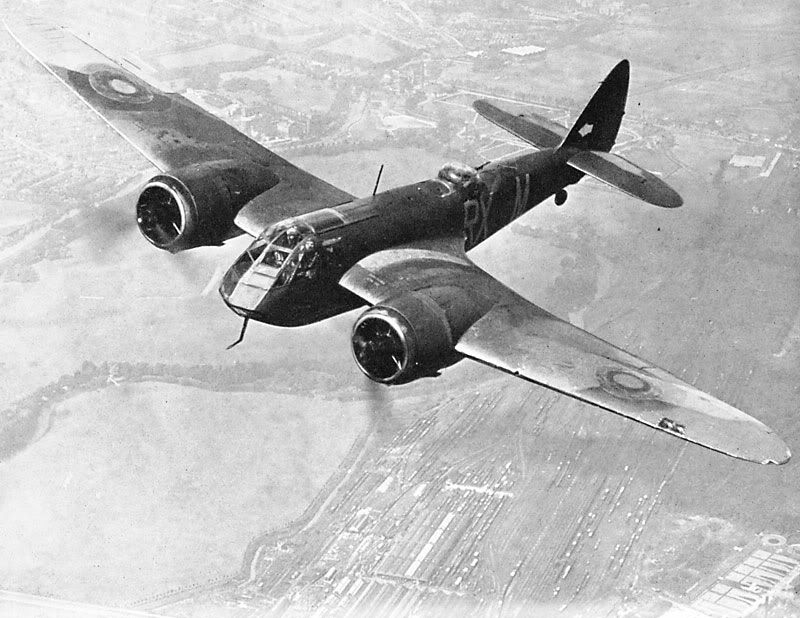Part 26.
August, 1940
A BOMBER SHOOTS DOWN THREE ENEMY FIGHTERS
BY A SERGEANT WIRELESS OPERATOR AIR GUNNER
The speaker is a sergeant wireless operator air gunner in one of our heavy bomber squadrons, who was recently awarded the Distinguished Flying Medal for gallantry in operations against the enemy. He comes from Derby. He was the rear gunner in a bomber which was attacked by three enemy fighters. In the engagement which ensued, the sergeant shot down two of them and the third broke off the fight. In the official announce�ment of the award, reference was made to the "high degree'' of skill, com�bined with clear thinking and quick judgment which he displayed in successfully dealing with this attack.
It was on the way back from a raid in the Ruhr that these three fighters had a go at us. We had been flying for about a quarter of an hour after bombing our target when we were picked up by searchlights. I called up the pilot on the intercommunication set and told him that the lights were dazzling me. They held us right across the town of Wesel, which is to the north of the Ruhr; then, on the other side of the town, the pilot finally got out of them.
There was no anti-aircraft fire, so I was keeping a particularly sharp look-out for fighters. Suddenly, tracer bullets started flying past the turret and I saw three fighters coming in at us from the rear. One was coming in from the starboard quarter and below us; the second was above and practically dead astern; and the third was five or six degrees to port, and he�like the one on the other side�was also attacking from below. To me it seemed that all three were converging on the rear turret.
The one on the starboard quarter seemed to be pretty close, so I had first shot at him. The first burst seemed to hit. If you can get your first burst all right, you can usually guarantee to get your following ones in too, unless things are particularly awkward; so I just kept pumping quick bursts into him�six or seven altogether. He was hitting us too. Some of his shots went through the tail plane, the rudder and the wireless mast, and an explosive shell from his cannon hit the armour plating of my turret. I didn't realise at the time that the shell had actually hit us. I thought it had exploded just outside. Anyway I know the bang deafened me for thirty-six hours afterwards.
The fighter got to within about one hundred or a hundred and fifty yards of the rear turret; then he pulled up like an aircraft pulling out of a dive. He seemed to hang there for a bit and I got in a few more bursts right into the belly of the machine. I saw him turn over and then I swung the turret on to the second fighter which had been closing in all this time, firing his four guns. I could see four streams of tracer coming at us. Out of the corner of my eye I noticed the first fighter go down in flames. He exploded in the air or when he hit the deck�I couldn't say which.
This second aircraft was the one which was flying slightly to port. I missed him with the first three bursts, because I was misjudging his speed, but the fourth burst hit him all right and after that I just kept repeating the performance. He was pretty deadly, too, and did further damage to our plane. The navigator got hit in the leg�not badly though�but nobody else was hurt. Then the fighter curled away out of my field of fire and that was the last I saw of him, but the second pilot said he saw him go down out of control.
After this the third enemy fighter came down on us. He closed in to about three hundred yards but wouldn't come any closer. I got a bit fed up with this so I fired a good long burst in his direction and he sheered off. We didn't see him again.
Altogether, I've done just over twenty raids over Germany, but that was the most exciting one of the lot. I've got my twentieth birthday coming along in a few days' time and I hope to be over Germany that night.

A Bristol Blenheim Bomber.